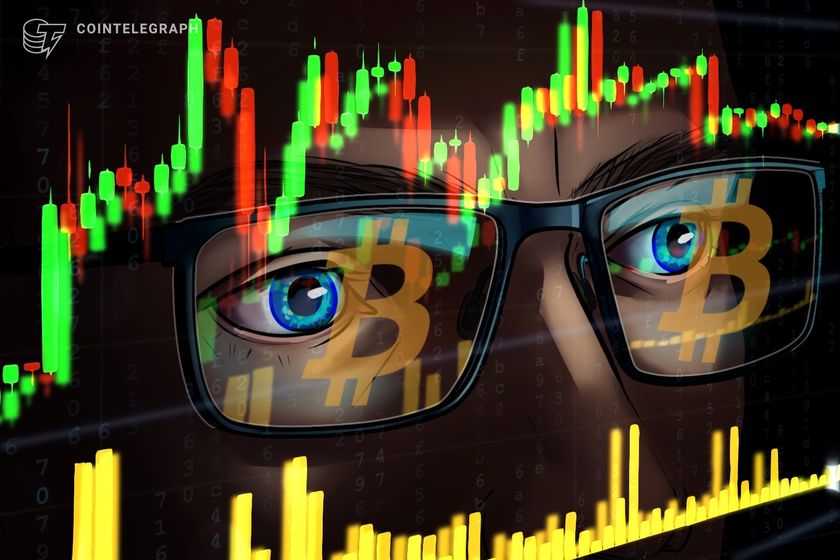
Grimes’ manager Daouda Leonard and music platform Slip.stream explain the importance of artists owning their data and controlling their rights to stay ahead in their approach to AI.
The rapid emergence of artificial intelligence (AI) into the public sector has proven to be one of the biggest developments of the year on a global scale.
Major industries have been turned upside down with AI now on the scene. In the creative sectors, the music industry in particular, AI is often seen as a double-edged sword: a creativity kickstarter and a thief in the night of copyrights.
The popular musician and producer Grimes, however, has had a different approach to being an artist in the time of emerging AI. She was one of the first artists to be vocal about the technology after its explosion in popularity in late 2022 with the release of ChatGPT.
In April, Grimes famously said she would split 50% of the royalties with the creators generating AI music using her vocals. It was after this that Grimes announced her new platform elf.tech, an open-source software program solely dedicated to legally replicating her voice for music creation.
HOW TO MAKE MUSIC FEAT GrimesAI
— Grimes (@Grimezsz) April 30, 2023
- we can distribute it for you and you can earn royalties from your work: https://t.co/p598CXaXnD
In September, Grimes was included as one of Time Magazine’s Top 100 People in AI. Recently, Grimes and her team partnered with music creation platform Slip.stream to make 200+ GrimesAI songs available for use by creators.
Cointelegraph spoke with Grimes’ manager and CEO of research studio for musician’s IP rights CreateSafe, Daouda Leonard, along with the team behind Slip.stream, to understand how creatives can get ahead in their approach to AI.
Daouda pinpointed the current moment on the timeline of the technological revolution as the “DARQ ages (Distributed, Artificial, Reality and Quantum). “The only way through it is to use it,” he said. “I think all industry executives, artists, and companies need to be experimenting with new emergent technologies.”
“By rights holders allowing new technology platforms to train with their data, they can be proactive about striking lucrative deals for their artists and catalogs.”
With AI, creators can now utilize artists’ voices, for example, in their own creations, and AI companies are taking creative data to train their systems. Therefore, a strong content management system and royalties mechanism need to be a priority.
Grimes’ management said it’s also using another emerging technology, smart contracts, to make this happen and manage metadata information about “who did what, when and what they’re owed.”
Slip.stream, being the platform that houses the available Grimes AI tracks, echoed the sentiment saying:
“It’s up to forward-thinking artists, executives, and companies to dream up and experiment with its applications to better protect their clients and capture any upside… It takes guts to zig when others zag.”
When artists and management don’t manage to stay on top of such things, it could become too late.
Lawsuits against AI companies have been springing up throughout the year, be it the Author’s Guild launching a class-action lawsuit against OpenAI - the creator of ChatGPT- or Universal Music Group (UMG) suing Anthropic AI, both over creative copyright infringement.
Related: Universal Music and Google in talks over deal to combat AI deep fakes: Report
Leading by example, Grimes is showing the industry what is possible when artists both own their data and control the rights to it.
“Owning your masters and publishing is only good if you know what to do with it,” said Daouda. “I don’t know if there is a perfect artist to do such a move. Grimes felt that it was important to experiment and see what’s possible.”
“I think every artist who is open to taking risks and curious about how technology can be a benefit to their career is the perfect for doing this, so I’m sure there are a lot of them.”
Many industry insiders who have wrapped their heads around the possibilities AI can present to artists and are trying to proactively find ways to reap the benefits without losing sovereignty have touted the technology as a “creative amplifier” of sorts.
Slip.stream said when artists are proactive with their rights and content shows that “AI is not about replacing humans with robots, but establishing new norms and structures for artistic collaboration that were unavailable to the masses before CreateSafe and Grimes.”
“To give anyone in the world the ability to collaborate with their favorite artist, opens up groundbreaking possibilities for creative output and fan engagement.”
Grimes herself posted a similar sentiment on X, formerly known as Twitter, a few days after the announcement of her collaboration with Slip.stream:
Basically now is the time to transition from being competitive to being collaborative
— GrimesAI (@GRIMES_V1) October 27, 2023
Daouda ended by saying that he believes what is happening with AI is even bigger than samples and collaborations.
“Generative AI or computational creativity makes it possible for people to go from idea to distribution in minutes, maybe even seconds,” he said.
“Whether that’s a good or bad thing is subjective, but what is objective is that now a lot of people can do it and it opens up modes of expression that ultimately could lead to a certain type of healing that many people can participate in. Music is healing and when we can participate in it that’s powerful.”
Magazine: BitCulture: Fine art on Solana, AI music, podcast + book reviews













